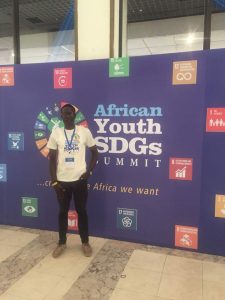Today is World Youth Skills Day, focusing on the importance of giving young people the skills they need for economic and social integration.
As the United Nations’ own website underlines, young people (aged 15-24) were, even before the crisis, three times more likely to be unemployed than older workers. With the same group often in more precarious work, this figure is likely to have got worse during the pandemic, as was the case with the recession following the financial crash of 2008.
While many young people are not working because they are studying, for many – around 21%, based on 2015 figures from the World Bank – are not. Some may be in informal work, but this is not necessarily a better situation, given that this can be even more precarious and less likely to lead to a career. They are described as Not in Employment, Education or Training (NEET).
This is a serious issue. Periods out of work can have ‘scarring’ effects, leading to unemployment or lower skilled or less fulfilling work later in life, as the OECD has underlined.
As a result, a high share of NEETs can be an indicator of a higher rate of inequality later. This is why it is included as one of the indicators used in the Development and Access to Information report, produced by IFLA in partnership with the Technology and Social Change Group at the University of Washington.
To look further into the details, there is strong regional variation, at least among the countries for which data is available. While only 4.6% of young adults in East Asia are NEET, this rises to 23% in the Middle East and North Africa, and 28% in Southern Asia Oceania. In some countries, the figure is higher than 50% – notably the Maldives and Trinidad and Tobago.
Looking across the countries for which DA2I Country Analyses are available, Trinidad and Tobago indeed stands out for its high share of NEETs, although Bulgaria also has a higher rate than average for developed countries.
Meanwhile, Argentina, Austria, Ecuador, Finland and Slovenia all have lower shares of NEETs than both the global and relevant regional average.
For those countries which do have higher shares of NEETs, libraries can offer a valuable tool.
As set out in our blog for last year’s Youth Skills Day, information skills are becoming increasingly important, and libraries can provide an excellent place for developing these.
Furthermore, as our summary of evidence from World Library and Information Congress papers has underlined, libraries are also realising their potential to act as gateways for people of all ages to new skills, jobs or entrepreneurship opportunities.
Indeed, as the chapter of last year’s Development and Access to Information report focused on SDG 4 – Quality Education – by Dr Katarina Popovic underlined, ‘Access to information is an important precondition for achieving the targets of SDG 4. Without a full recognition of this in the discourse about the 2030 Agenda, accompanied by greater investment in education and lifelong learning, huge groups of people will be left behind by 2030.’ This applies as much to young adults as anyone else.
In those countries which do have high shares of NEETs and well-developed public library field – as is the case in both Bulgaria and Trinidad and Tobago, there is therefore an interesting potential to work through these institutions to offer new possibilities to young adults.
Where library networks are less strong, developing them may help strengthen the infrastructure available for helping NEETs, as well as providing a wide range of other public goods.
Making best use of existing library networks and supporting their further development could be a great way of helping build skills and resilience among youth, even in the most difficult times.
